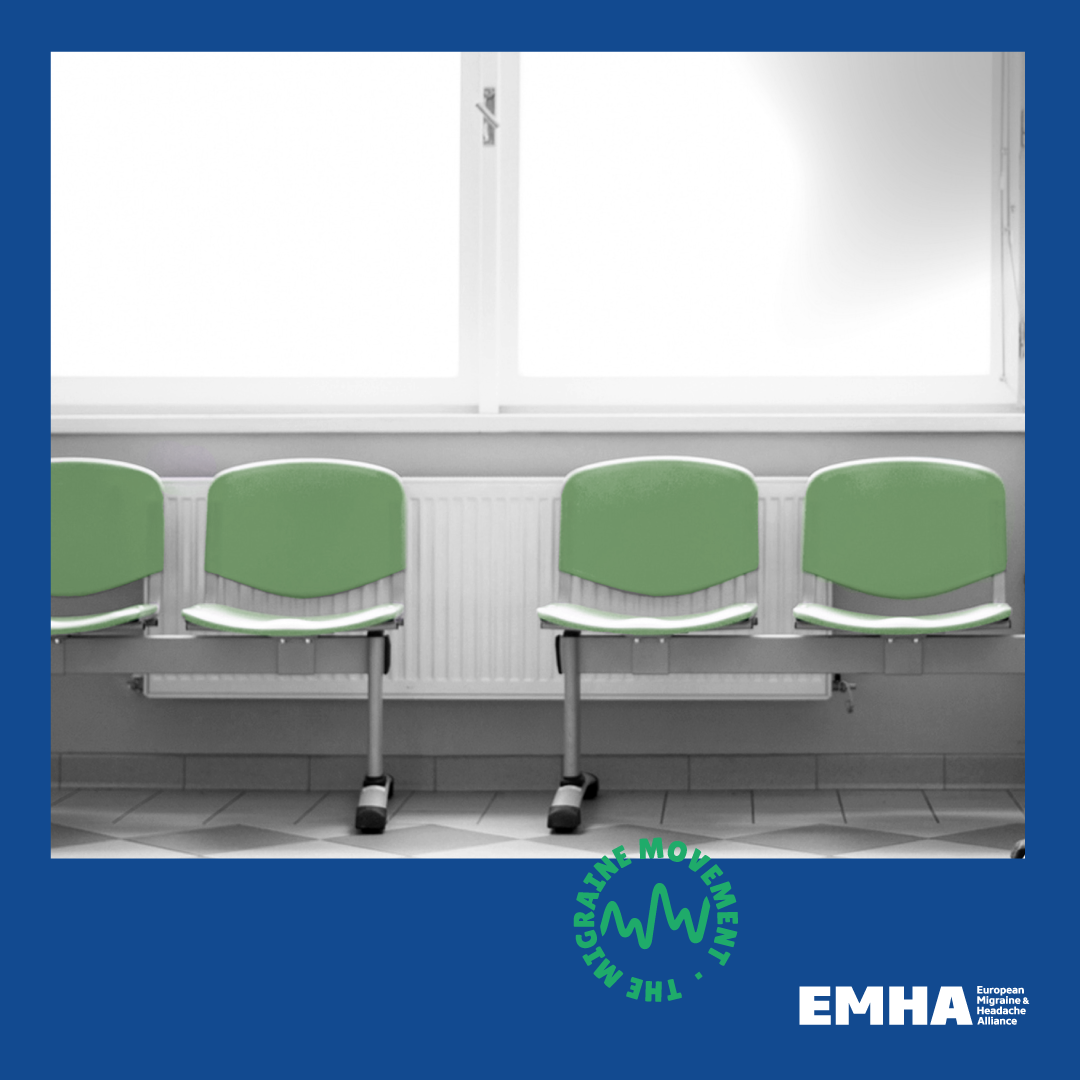Migraine in the EU:
EMHA’s ‘Access to Care’ survey reveals shocking hurdles for patients to overcome and disparities in the EU. Presented at the Migraine in the EU: Lifting the barriers to treatment webinar.
29 September 2021, Brussels, Belgium. The European Migraine & Headache Alliance (EMHA) organised a webinar “Migraine in the EU: Lifting the barriers to treatment” to present the results of a survey looking into the migraine patients’ journey to have a diagnosis and treatment for their disease in the European Union (EU). The survey was conducted in 2021, with close to 3,400 participants from 10 countries.
The survey shed light on the impact of migraine attacks on the migraineurs’ daily life and the shocking number of hurdles they have to overcome to get a diagnosis and treatment.
During migraine attacks, patients find it difficult to perform tasks they usually perform easily when free from the attacks: cooking, eating, taking care of the family or a child, working, getting medicines at the pharmacy, driving.
It takes too long before a diagnosis of migraine is made.
General Practitioners are usually the entry point to the patient journey and a neurologist will make a diagnosis. Nevertheless, it takes a number of specialist visits before a diagnosis is made: 19% of the participants had to see 4 to 5 specialists, 6 to 7 specialists (7%) and over 8 specialists (8%).
It takes too long between diagnosis and access to treatment
49% of the survey participants had to wait over 3 years to get a treatment. The first treatments received are general analgesics. Then, triptans (78%) are prescribed. Botox is the least prescribed treatment (11%). Poly-medication is frequent and multiple drug combinations have been reported. Patients’ main barriers to new treatments like anti-CGRP access is that doctors do not mention them (26%), they are not covered by the health system (25%) or the patients are not eligible for the treatment yet (25%). 25% reported paying for the new anti-CGRP out of their pocket.
Access to diagnosis and treatment is unequal in the EU
In the EU, access to a professional for diagnosis and treatment varies. For instance, the survey showed that Finland and Greece were the two countries where the participants consulted a neurologist in the first place. Access to a neurologist for treatment and treatment follow-up, organisation of the healthcare systems, limited access to specialised migraine centres, access to treatment (including new treatments) also show differences between countries
No more time to waste
European migraineurs cannot wait any longer. EMHA presented a Statement calling upon the European Commission, the European Parliament and national governments to set-up an ambitious European Migraine Action Plan to overcome the burden of migraine on individuals and society. This Statement has already been supported by a number of key stakeholders. It 2
will be posted on EMHA’s website to gather as much support as possible from the migraine community, professionals, policy makers… to reflect the magnitude of the problem and the urgency to act.
The webinar of 29 September 2021 was hosted by Deirdre Clune, Member of the European Parliament (Ireland) and member of the European Parliament Migraine Alliance.
‘Having such a number of hurdles to overcome before having a diagnosis and treatment is totally unnecessary and inacceptable. This has huge repercussions on the migraineurs’ quality of life and society as a whole. EMHA and the migraine patient community call on the EU and national policy makers to commit to make migraine a priority health action, said Elena Ruiz de la Torre, EMHA Executive Director.
‘Since EMHA’s Call to Action’ to make migraine a EU and national health priority, very little has been done. Today’s Statement already endorsed by a large number of supporters and the survey’s results must be wake-up call for the policy makers’, said Patrick Little, President EMHA
‘People with migraine should not be left in the dark any longer. EMHA’s survey results go deep into what needs to be urgently addressed to improve migraineurs quality of life and full inclusion in society. Now we know, let’s act. No time to lose,’ said Deirdre Clune, Member of the European Parliament, EPP, Ireland.
Contact : communication@emhalliance.org
To endorse EMHA’s Statement, please visit: https://www.emhalliance.org/for-policy-makers/#migraine-sufferers






